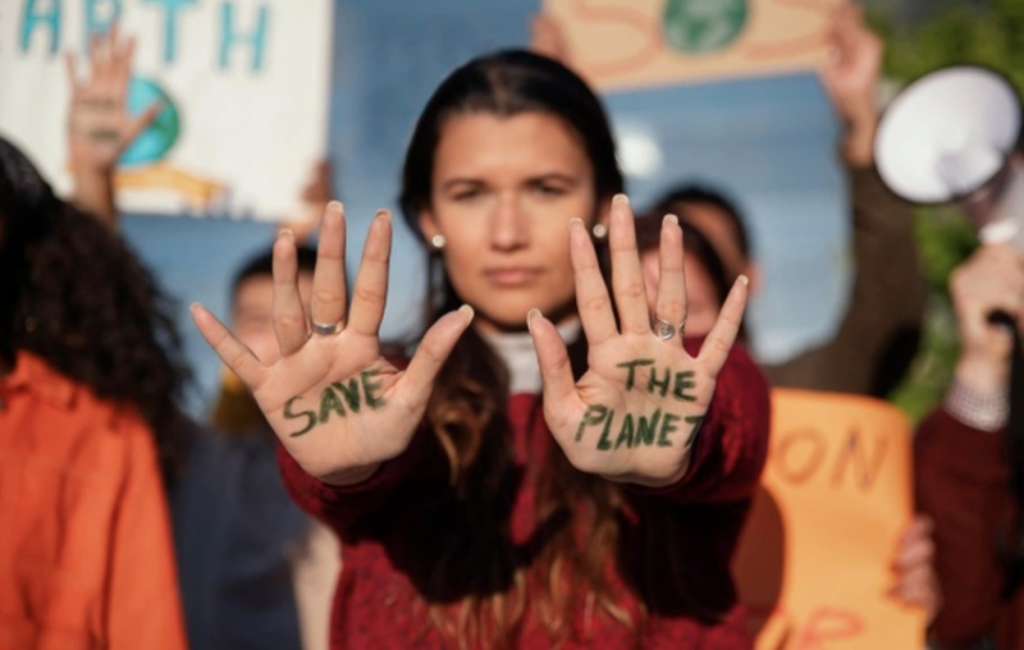
Climate change, digital innovation, raising inequalities. These are just some of the megatrends that have been shaping our world.
On the occasion of the 75th anniversary of the United Nations, the UN Economist Network published a report reviewing the main trends that have been shaping our world for the past decades. The Network identifies five megatrends: climate change, demographic shifts, population ageing, urbanization, the emergence of digital technologies and inequalities. All these trends are interconnected and all of them influence, directly or indirectly, the achievement of the 2030 Agenda for Sustainable Development. At the same time, these megatrends are the result of human activity and therefore they can be shaped by human decisions and policy design.
We can divide these megatrends in two categories. On one side, urbanization, demographic trends, and technological innovation are a direct manifestation of human progress and they generate explicit benefits for societies and economies. Rather than be stopped, they should be shaped to maximize positive impact. On the other side, climate change and environmental degradation are not inevitable, but they are the result of policy failures and therefore need to be reversed.
There are no short-term solutions for these megatrends. However, they can definitely be changed and shaped over time by consistent policies. Each one of these trends has both positive and negative impacts. Promoting the positive effects and halting the negative ones should be the goal of any policymaker. In this regard, it is important to notice how policies designed for a single trend can influence another, creating the potential for co-benefits. More importantly, when a positive result is achieved in one area through an intervention designed for another area, it can have even greater impacts. Therefore, policymakers should be aware of the links and interconnections between these trends in order to maximize the effects of their policies. For the same reason, positive interventions in one area may have negative effects in another area. In this case, efficient policymaking will require a balanced consideration of the trade-offs.

Climate change and environmental degradation
The drives of climate change are deeply rooted in our economies and societies. Addressing this megatrend will require a transformation on both the demand and supply side. For example, conscious lifestyle changes in consumption preferences, cleaner production processes, improved resource efficiency and corporate responsibility.
In particular, the Network urges to take action on two main points. First, a major transition in food production systems, often considered the main driver of human-induced land use. Moreover, a deeper understanding of biodiversity and climate is key to the safeguarding of productivity and livelihoods. In this regard, nature-based solutions, land degradation neutrality and circular economy will be extremely important. Second, the acceleration of the transition from fossil fuel to green energy. Governments can encourage this process through market-and-price incentives, such as carbon pricing and fossil fuel subsidy elimination. Regulatory measures – for example, minimum fuel efficiency standards for vehicle fleets, minimum air quality standards, differential taxation of vehicle according to their fuel consumption – will be effective and must be taken into consideration.
Finally, mobilizing financial resources for climate mitigation and adaptation is essential in any national climate action plan. In this regard, the participation of development banks and the private sector is fundamental.

Demographic trends and population ageing
Consistent results concerning demographic trends will be achieved only through careful long-term planning. Essential actions in this area include expanded access to sexual and reproductive healthcare services, and investing in education and healthcare for all. At the same time, lifelong learning will be crucial to ensure the skills flexibility across the lifecycle. In connection to this, training for older people in the use of new technologies and the elimination of age-related discrimination will be crucial to promote inclusive economic growth and productivity. Other actions to address this type of inequalities involve universal social protection measures and the promotion of retirement saving.
With regard to gender equality, specific employment actions shall be taken to improve female participation, such as family-friendly policies.

Sustainable urbanization
National urban policies represent a useful instrument for a balanced territorial development. When urbanization is incorporated in economic and development planning, it can help build a system of cities with complementary economic functions. A part from increasing productivity, this system can promote the connection between urban and rural areas.
In addition, efficient urban planning should be integrated vertically to improve policy coherence and investments, and maximize positive impacts. In this way, policies will have a positive impact on the environment – especially in terms of land use, waste reduction and circularity – but also on the economy, by strengthening local production and creating job opportunities.

Digital technologies
Harnessing digital knowledge and capability is essential for the development of any country. As consequence, establishing policies for the foundation of inclusive digital economies and societies will be crucial. In this regard, in order to fill the digital divide, the international community needs to support developing countries in the expansion of their technological capabilities. At the same time, governments have to limit the negative consequences of digitalization. Therefore, it will be fundamental the adoption of regulations for the protection of consumers, and especially their data and privacy.

Inequalities
There are no inequality-reducing policies that can be applied universally. However, any strategy aiming at addressing inequality should comprehend three blocks of policies. The first one includes policies having the goal to expand capabilities, and therefore promote equal access to opportunity. The second block encompasses policies aimed at the redistribution of incomes and profits. Finally, the third block consists of policies tackling discrimination and prejudice.
Moreover, the report underlines how cooperation among countries remains essential also in this issue.
The majority of these megatrends are not a novelty. Issues like climate change, urbanization, and inequalities have been at the center of the international debate for many years. However, no consistent action to tackle them has been taken yet. While the trends individualized by the Network present a worrying landscape for our future, especially from an environmental and social point of view, they can also offer important growth opportunities. In fact, each trend can have both negative and positive impacts. Everything will depend on the way we shape our responses and on the policies we will choose to implement. Positive outcomes and changes are possible, but they call for commitment and cooperation. In this regard, the UN represents a useful tool. However, national governments and international cooperation remain key elements for the achievement of positive results.
This article is based on the UN Economists Network’s report “Shaping the trends of our time”. We invite you to download the full report at this link.